IELTS Speaking Cue Card 2024: In this article you will be reading about the latest IELTS speaking questions. It is always a good idea to practice different questions and topics before the test. However, you don’t need to worry. When we talk to our candidates, many of them tell us that their main concern in speaking is that they don’t have a very wide range of vocabulary.
It is ok not to have a wide range of vocabulary Not everyone has got the vocabulary to talk about all the familiar and unfamiliar topics. Besides, there is no need to have information about everything so that you can answer all the questions. You need strategies.
In this article you will look at one of the latest cue cards in part two of IELTS speaking, and I will give you my answers to that. Then I will explain why I gave that answer, analyzing it based on IELTS criteria. Let’s now get started.
IELTS Speaking Cue Card 2024
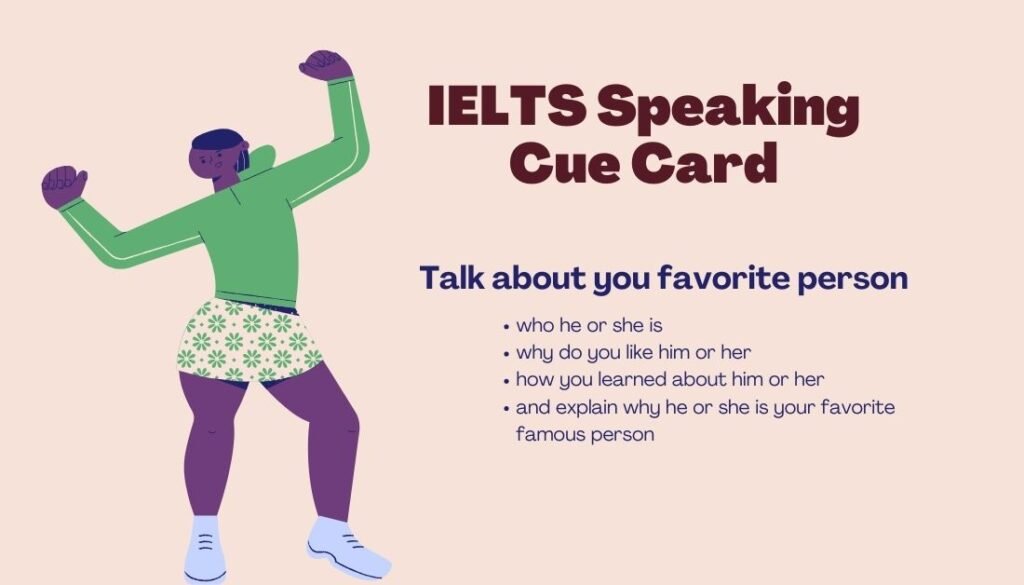
As we want to talk about a cue card in the second part of IELTS speaking, let’s take a look at the cue card here. It says:
Talk about your favorite famous person. You should say:
- who he or she is
- why do you like him or her
- how you learned about him or her
- and explain why he or she is your favorite famous person
The best way to prepare for the given topic is to think about it first. You should take time to generate ideas, or you can write them in your notebook. Then come back and read my answer. If you do so, you will be able to generate ideas on your own. Then, by analyzing my answer to this cue card, and then you can just compare it with yours to correct yourself and maybe have a better idea the next time you want to talk about it. So, here we go.
IELTS Recent Speaking Que Card: Your favorite famous person
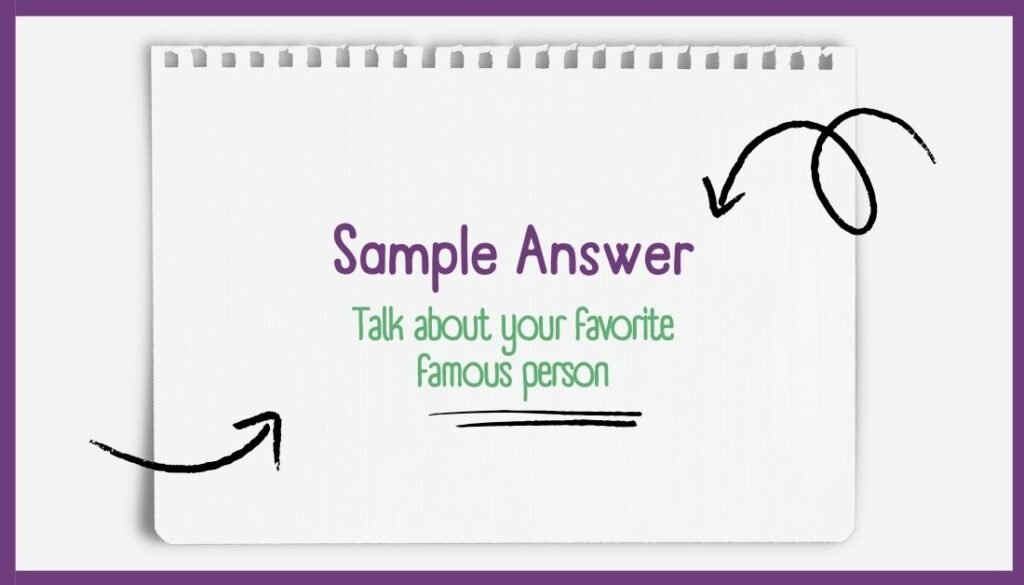
Talk about your favorite famous person. You should say:
- who he or she is
- why do you like him or her
- how you learned about him or her
- and explain why he or she is your favorite famous person.
As you can see, the cue card is asking us to talk about our favorite famous person, and I answered this cue card, covering the bullet points like this:
In the last few months, I have been thinking about how I can earn more money through running my own business. For that reason, I surfed the web to get some information about the famous businessmen and businesswomen’s personal life, besides their accomplishments. There, I saw James Richard, who is one of the most popular businessmen known by many across the globe. [Ielts Speaking Cue Card 2024] I have endless reasons to choose him as my favorite famous person. To name some, for example, for him, fame doesn’t count for much.
In addition to that, he is a decisive, determined person who had put all his effort and time into his business to boom. I read somewhere that when he had just started his business, he operated at a loss for a year, but as he was patient enough, he gained market share after a while and made a profit. On the other hand, I like him because he knows how to do business with other companies, which is not something everybody can manage. Other than that, he inspired me to take the next step in setting up a small business for myself, which kind of revolutionized my career path.
So, this was my answer covering the bullet points. Now, we want to analyze my answer. I want to tell you how I used some collocations or how I just came up with these ideas.
Tips: How to speak for two minutes in the IELTS Speaking test
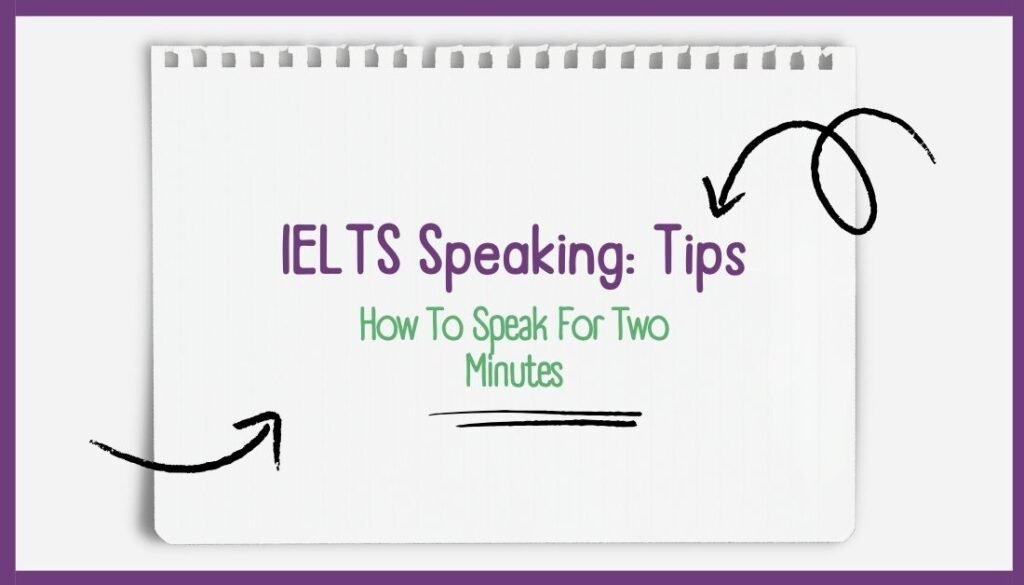
- The thing is that when I was asked to talk about this topic, a famous person who is my favorite, I really didn’t have any idea, and it’s okay. It happens a lot in the second part.
- Sometimes, you may face a cue card, a topic that you don’t have information or vocabulary about. But it’s okay if you don’t have information.
- If you don’t know what to say, you can use some fillers and boosters to start your answer, to buy yourself some time, and then you can just keep talking.
- But if you still don’t know what to say, you can go off-topic, or you can fake your answer, like what I did here. I didn’t go off-topic, but I faked my answer. [Ielts Speaking Cue Card 2024]
Students aslo read: IELTS Speaking Questions With Answers: 9 Bands
Explanation: How I generated my answer
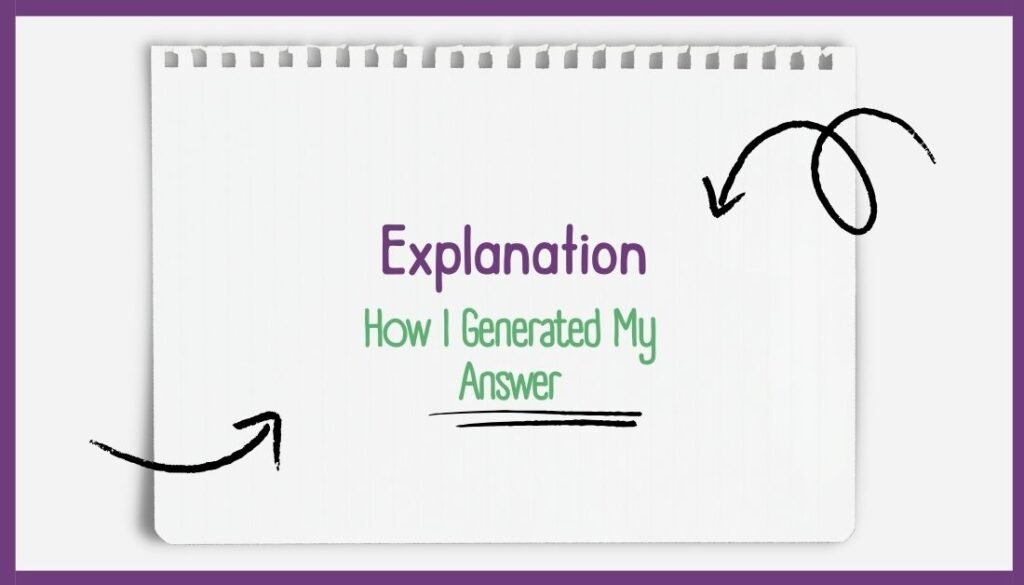
- Like, this person I mentioned, James Richard, I just made up this name because, you know, there is no such person, or maybe there is, but I don’t know a famous person who is called James Richard.
- I just made it up and described somebody who doesn’t exist. And it doesn’t matter, so you don’t need to tell the truth. Just make it up, and fake your answer.
- I started my answer by saying that I was surfing the web, and then I saw the name of this person, and I read about him, and I realized that he is a famous person, and now he’s my favorite. So it was all a lie. I faked my answer.
IELTS Speaking Vocabulary: Useful Collocations
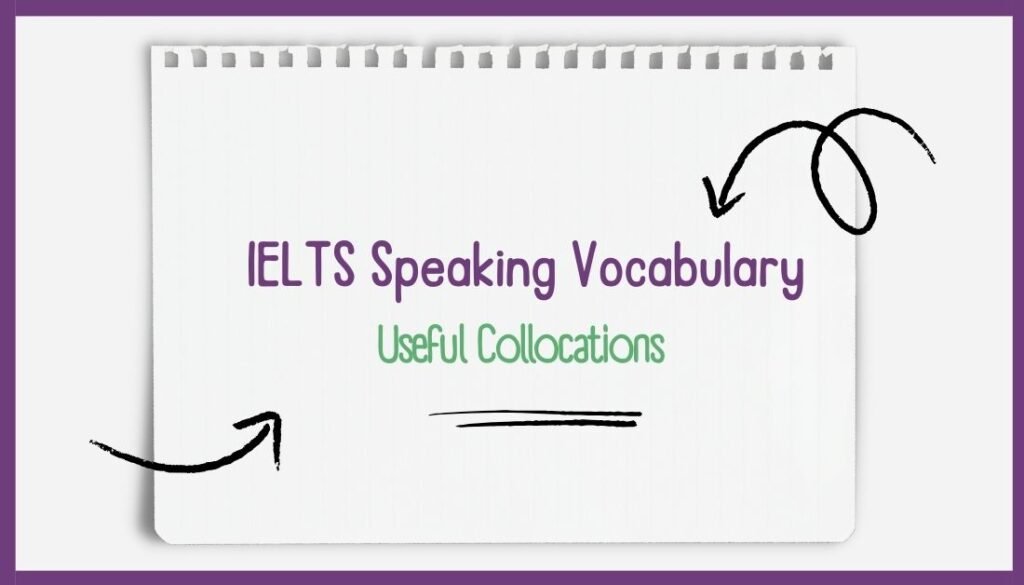
Now, I use some collocation, and some vocabulary to get a high score, like, for example, the highlighted ones in the given answers:
- Earn more money:
- You earn money.
- Run my own business.
- Surf the web:
- which means to search on the internet.
- Accomplishments.
- something that has been achieved successfully
- Across the globe:
- it means around the world.
- Endless reasons:
- it means a lot of reasons.
- Fame doesn’t count for much:
- it means fame is not important to him. Being famous is not important to him.
- A decisive and determined person:
- A decisive person is somebody who makes decisions very quickly.
- A determined person:
- a determined person is somebody who makes firm decisions.
- Put all his effort and time into something:
- So you put your time into something, you put your effort into something to make it happen.
- A business booms:
- it means a business when you try a lot, you dedicate all your time, and all your energy to a business to succeed.
- He operated at a loss:
- it means he has spent more money that was coming into his business. It happens, right?
- He gained market share:
- it means he secured a significant number of customers and finally made a profit. It means he made money.
- Take the next step in setting up a small business:
- it means to start a small business, you take the next step, you set up a business, and then you do business.
- Each revolutionized my career path:
- it means it made a very big change in my work life, career path, work life.
So, I use all these collocations because I had good collocations and vocabulary about business, about work. But if you don’t have good collocations in that given topic, you can just think about another topic that you are better at. This is something that I tell the candidates all the time. When they have speaking mock tests with us, like when you don’t have good vocabulary, just think about the topic that you are better at and try to connect this topic to that one. It helps you a lot to get a better score. [Ielts Speaking Cue Card 2024]
IELTS Speaking Vocabulary: Useful connectives
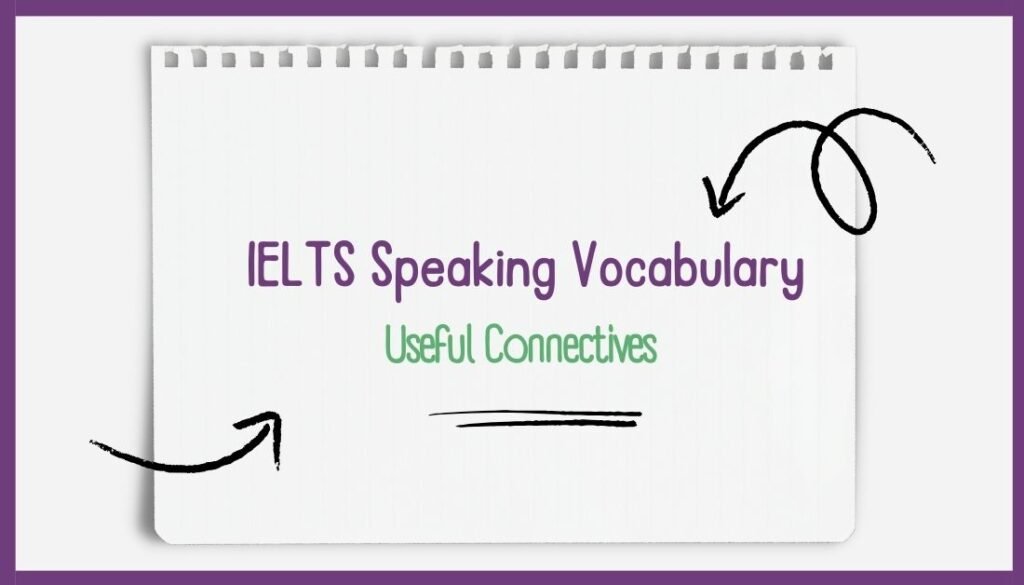
Other than that, I have used some connectives here, you can see in the answer above, the highlighted in bold, like:
- For that reason
- Besides
- For example
- In addition to that
- On the other hand
- Other than that, which means in addition, besides when you want to add more information.
How to score better in the IELTS speaking test:
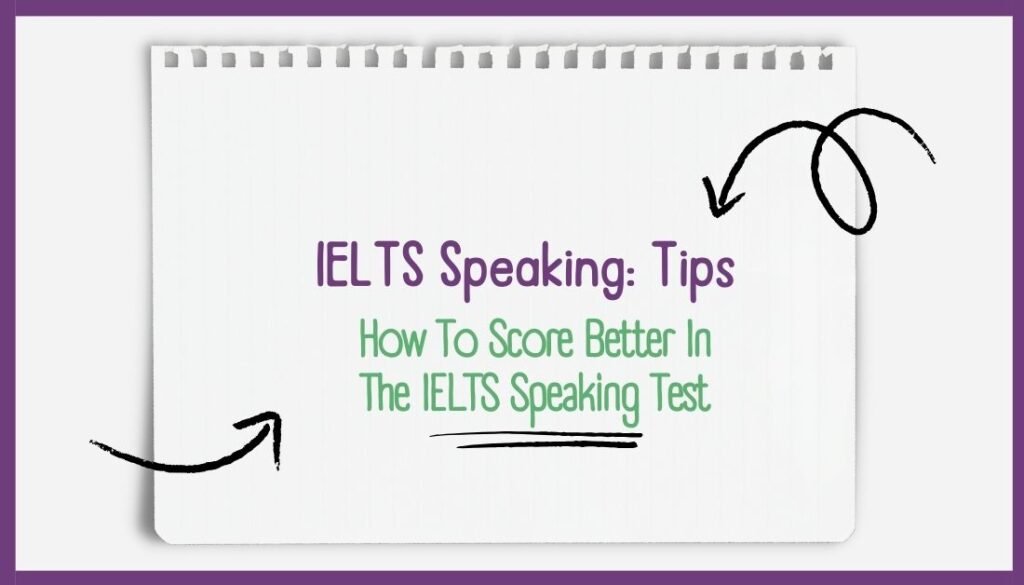
You should also use some complex grammatical structures, like relative clauses, like conditional sentences, subordinate clauses, or compound sentences, and using good connectives can help you make these complex grammatical structures. So try to do that, try to use them, but try to be error-free. That matters more.
Conclusion:
So, this is what you should do: connectives, fillers, and boosters, your topic development, and not pausing and hesitating all the time, using some good pronunciation features like intonation, like word stress, sentence stress, and of course, complex grammatical structures, because this is what you are expected to do in IELTS speaking. [Ielts Speaking Cue Card 2024]
Just like what we did in this article, you can look for speaking questions, give your own answers to them, record yourself, and then analyze your responses. It will make a big difference, trust me.
Students also read: IELTS Speaking Common Topics With Answers: 15 Questions